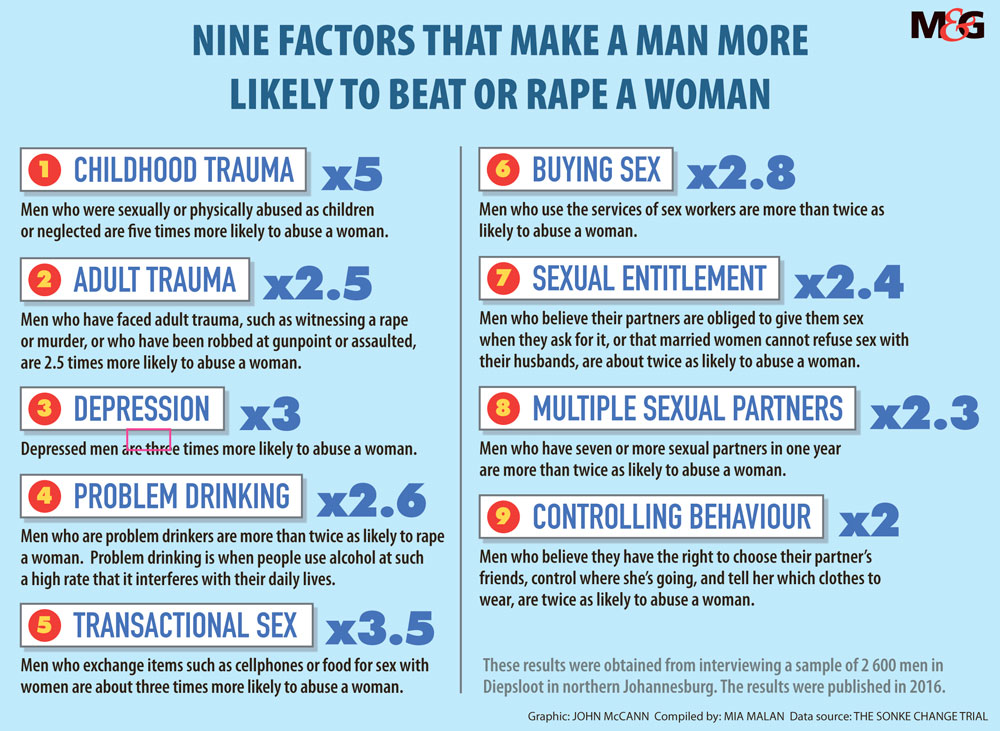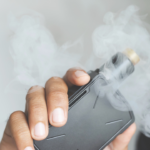Men who abuse women have often been victims of maltreatment themselves resulting to the intergenerational cycling of abuse.
Why do men abuse women? There’s no one answer, but research around the world have repeatedly shown that boys who were abused as children are significantly more likely to be violent adults.
One such study, conducted by the University of the Witwatersrand’s public health department and the social justice organisation Sonke Gender Justice, found that male study participants, who had been abused or neglected as children, were five times more likely to commit gender-based violence than those who have not endured such abuse. The study was conducted among 2600 men in Diepsloot north of Johannesburg.
In the Sonke study, of which the results were released in 2016, 56% of men reported that they had either raped or beaten a woman. Eighty five percent of study participants said they had also been neglected as children or had experienced physical or sexual abuse.
Sixty percent of the men had also experienced adult trauma, such as witnessing a rape or being held at gunpoint. This made them two and a half times more likely to physically or sexually abuse a woman.

A possible explanation for the relationship between psychological distress and gender-based violence may be that “mental health problems cause difficulties with emotion regulation and some men may use gender-based violence perpetration as a way to cope with their painful emotions”, a 2012 study in the Journal of Family Violence suggests.
Exposing boys to trauma also affects brain development, “enhancing anti-social and psychopathic behaviour and reducing the ability to empathise”, the South African Medical Research Council (MRC) explains in a 2009 policy brief.
Several studies have revealed traumatised children or adults are also more vulnerable to depression. The Diepsloot study confirmed this: a quarter of the participants suffered from “probable” depression, which the researchers measured by asking the men to respond to standard mental health screening tests.
This, too, influenced men’s use of violence: those who showed signs of depression were three times more likely to beat or rape a woman than those who weren’t depressed.
- Want to know more? Read our recent long-form feature on this issue here
Mia Malan is the founder and editor-in-chief of Bhekisisa. She has worked in newsrooms in Johannesburg, Nairobi and Washington, DC, winning more than 30 awards for her radio, print and television work.





